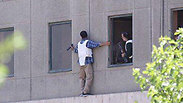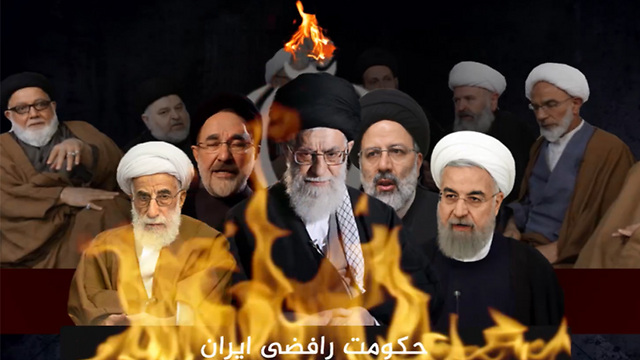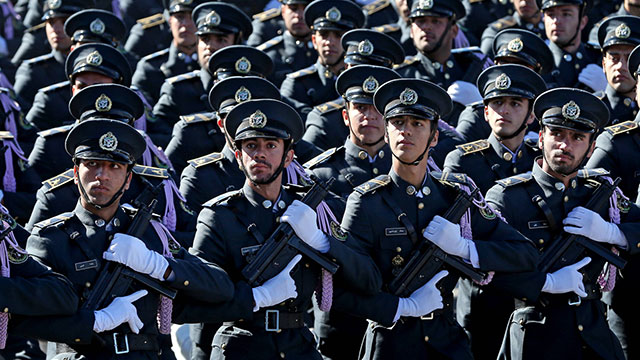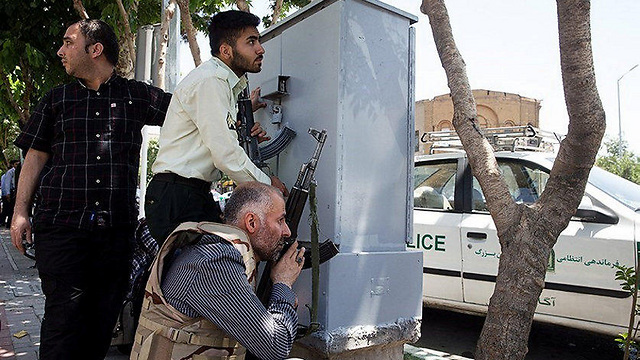
Burning Persia: ISIS' hate for Iran
Analysis: ISIS, which is losing territory, places greater emphasis on quality attacks and less on conquests—and there is no more bitter enemy of the Sunni organization than Shiite Iran.
"ISIS will change the geography of its operations from Syria and Iraq, and will move to other places," said Shamkhani, who added that the nature of the threat of ISIS will transition from the conquest of territory to terrorism.
The twin terror attacks in Tehran on Wednesday—which killed 13 people and wounded 43—is a realization of Shamkhani's prophecy. As long as ISIS continues to lose territory, it becomes less of a state entity and more a terrorist organization that puts emphasis on "quality" terrorist attacks against enemies.
US President Donald Trump used the attack as an opportunity to rebuke Iran, two weeks after signing one of the largest arms deals in history with Iran's bitter enemy, Saudi Arabia.
Trump said he prayed for the victims of Wednesday's attacks, but added, "States that sponsor terrorism risk falling victim to the evil they promote."
Iran, which blamed Saudi Arabia for the attack and vowed revenge, is considered one of the Sunni terror group's most bitter enemies. The reason for that is Iran represents Shiite hegemony in the region, which in ISIS' view, succeeded in taking control of Syria and Iraq and marginalized the Sunni community.
ISIS' focus on Shiites did not just manifest itself in one day. During the days of al-Qaeda, Abu Musab al-Zarqawi carried out serious attacks against Shiites in Iraq and ISIS leader Abu Bakr al-Baghdadi regularly makes speeches denouncing the branch of Islam and Iran.
'Persia from yesterday to tomorrow'
In a video published by ISIS entitled "Persia from Yesterday to Tomorrow," the group threatened to attack Iran and accused the Shiite country of persecuting Sunnis living within its borders. The video goes on to accuse Iran of executing no less than 18,000 Sunnis in Iran since the 1979 Iranian Revolution.
In an interesting twist, ISIS also claims in the film that the Islamic Republic of Iran is not an Islamic theocracy, but is in actuality a copy of democratic institutions from the West.
One of the speakers in the video calls to "burn the soil from under their feet" and carry out attacks in mosques in the cities of Tehran and Isfahan.
There are those that claim Iran played both sides and maintained contacts with groups like al-Qaeda and helped plant the seed that would eventually become ISIS.
However, Iran and its "axis of resistance"—the Syrian regime, Russia, Iraq and Hezbollah—offer a different version of events.
They accuse Saudi Arabia, the United States and Israel for creating ISIS in order to disrupt the region. In contrast, that same axis portrays itself as those who paid with their own blood the cost of succeeding in stopping ISIS from taking over the whole region.
Iran and its allies claim that ISIS is educated in the Saudi Wahabi ideology. As such, the Iranian Revolutionary Guards were quick to blame Saudi Arabia for the attack.
As far as Iran is concerned, Wednesday morning's attack on parliament and the tomb of Ayatollah Ruhollah Khomeini will only strengthen the perception of Tehran and the "axis of resistance" concerning its legitimacy to fight to the end. If the "axis" withdraws from the fronts of the fighting, attacks such as those Wednesday may become more common in Tehran.














